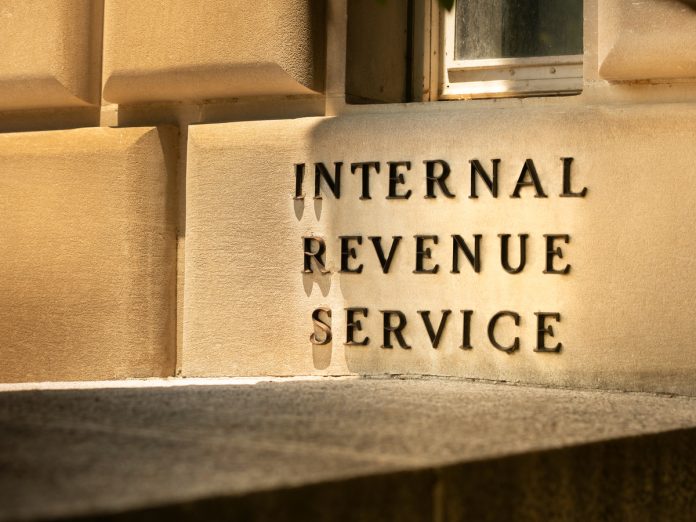WASHINGTON, D.C. – The Treasury Inspector General for Tax Administration (TIGTA) issued a report on March 30, which made recommendations to the Internal Revenue Service (IRS) regarding tax compliance and the cannabis industry.
The report was titled The Growth of the Marijuana Industry Warrants Increased Tax Compliance Efforts and Additional Guidance.
The purpose of the report was to “evaluate the IRS’s examination and education approach to certain cash-based industries with an emphasis on legal marijuana operations,” as stated by the TIGTA.
The result was to point out glaring inadequacies in tax reform, related to the cannabis industry, which has been legalized and taxed by thirty-three states (including ten states with recreational legalization), but remains illegal according to federal regulations.
The report cited federally illegal status as an added challenge for the cannabis industry, which continues to operate under outdated tax regulations. Another obstacle for legal cannabis businesses is that they are prevented from accessing regular banking services—also due to illegal status—and typically operate on a cash-only basis.
Internal Revenue Code (I.R.C.) Section (§) 280E was a particular sticking point in the TIGTA report; the code disallows certain expense deductions. The exact language of the code is as follows:
“No deduction or credit shall be allowed for any amount paid or incurred during the taxable year in carrying on any trade or business if such trade or business (or the activities which comprise such trade or business) consists of trafficking in controlled substances (within the meaning of schedule I and II of the Controlled Substances Act) which is prohibited by Federal law or the law of any State in which such trade or business is conducted.”
Pioneering Bay Area dispensary Harborside in 2018, after being fined millions of dollars for attempting to take disallowed deductions, countered the noncompliance charge by challenging I.R.C. § 280E.
At question were Harborside’s tax returns for years 2007 – 2014, when the dispensary operated as a nonprofit, C-corporation. The dispensary, founded by well-known cannabis advocate Steve DeAngelo, hoped the case would force progress on tax reform for the industry. Harborside ultimately lost the case however, leaving I.R.C. § 280E intact.
“In Patients Mutual Assistance Collective Corporation d.b.a. Harborside Health Center v. Commissioner of Internal Revenue, the Tax Court disallowed a tax deduction on all of Harborside’s expenses, per 26 U.S. Code § 280E—including its non-marijuana related expenditures—although many dispensaries are permitted to take deductions for activities unrelated to cannabis,” the Moskowitz LLP tax attorney blog stated in 2018.
The TIGTA report more specifically said, “Marketing, advertising, selling expenses, distribution, interest expense, and other costs as listed in Treas. Reg. 1.471-11(c)(2)(ii). If these costs are included as part of costs of goods sold, they would be disallowed as an ‘I.R.C. § 280E Adjustment,’ also increasing the taxable income and tax obligation of a business.
“However, the Internal Revenue Service (IRS),” the report went on to say, “has provided little guidance associated with I.R.C. § 280E other than Office of Chief Counsel Advice 201504011. No references to marijuana businesses can be found in IRS publications. Based on Office of Chief Counsel guidance, taxpayers subject to I.R.C. § 280E determine costs of goods sold pursuant to I.R.C. § 471.”
I.R.C. § 280E and I.R.C. § 471 allow cannabis businesses to increase deductions by formulating inventory amounts under less strict definitions, as contained in I.R.C. § 280E. Several industry tax attorneys recommended that cannabis businesses review tax filings previous to 2017, for compliance with I.R.C. § 280E. A provision contained in The Tax Cuts and Jobs Act, I.R.C. § 471 has been in effect since after December 2017; though, the report said the effect of I.R.C. § 471 on cannabis business tax filers was “uncertain,” and may change “the burden on” cannabis businesses.
The TIGTA report also pointed out that while other industries have received detailed guidance formulated for specific business models, the cannabis industry has yet to be offered guidance manuals or literature.
The TIGTA report suggested IRS guidance for the industry should include, “such topics as Frequently Asked Questions and other information that would improve awareness of tax filing requirements for taxpayers in this industry, such as the correct application of I.R.C. § 280E and 471(c).”
Areas the report highlighted for consideration were:
- “The IRS is currently not using this publicly available information,” and could use state tax information to “identify non-filers and under-reported income.”
- “All businesses are required to make their Federal tax deposits via the Electronic Funds Transfer system, and the failure to use the Electronic Funds Transfer system subjects businesses to a ten percent penalty,” the report said, which results in penalties for cannabis businesses that pay taxes in cash.
- “Marijuana businesses in California, Oregon, and Washington have a high rate of noncompliance with I.R.C. § 280E,” report results stated.
- That “the current IRS compliance approach for marijuana businesses is primarily concentrated in the Western Area,” but the IRS needed to add more compliance personnel and resources, in an effort to bring cannabis businesses in various states into compliance.
The report also mentioned two pieces of legislation currently being considered by Congress—the Secure and Fair Enforcement Banking Act of 2019 (SAFE Act), and the Strengthening the Tenth Amendment Through Entrusting States Act (STATES Act)—which may also have an effect on regulatory changes for the cannabis industry, leading to cannabis tax law reform.
The IRS responded to the TIGTA report by affirming most of the Inspector General’s recommendations, but cited several times that acting on recommendations was dependent on available resources.










